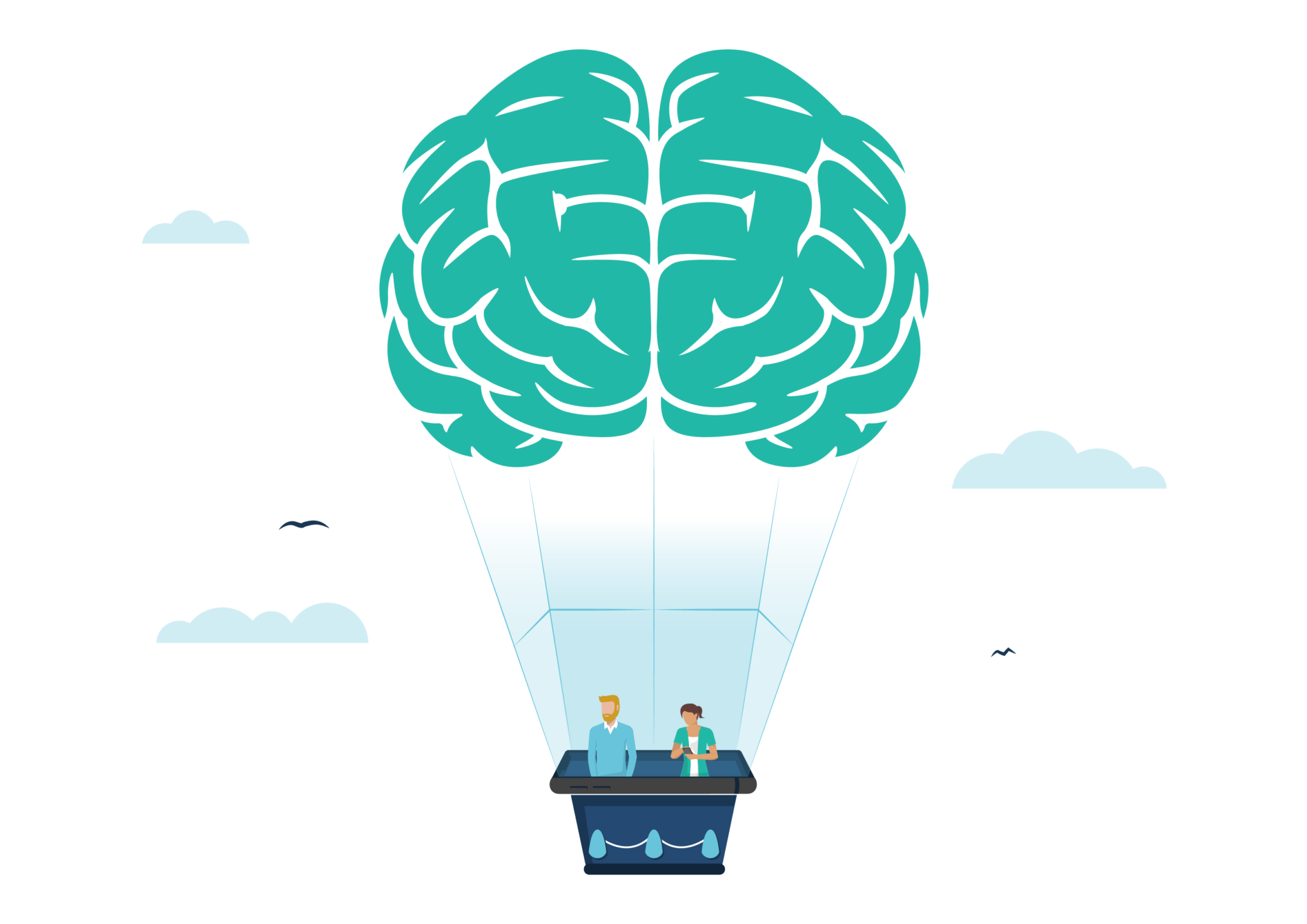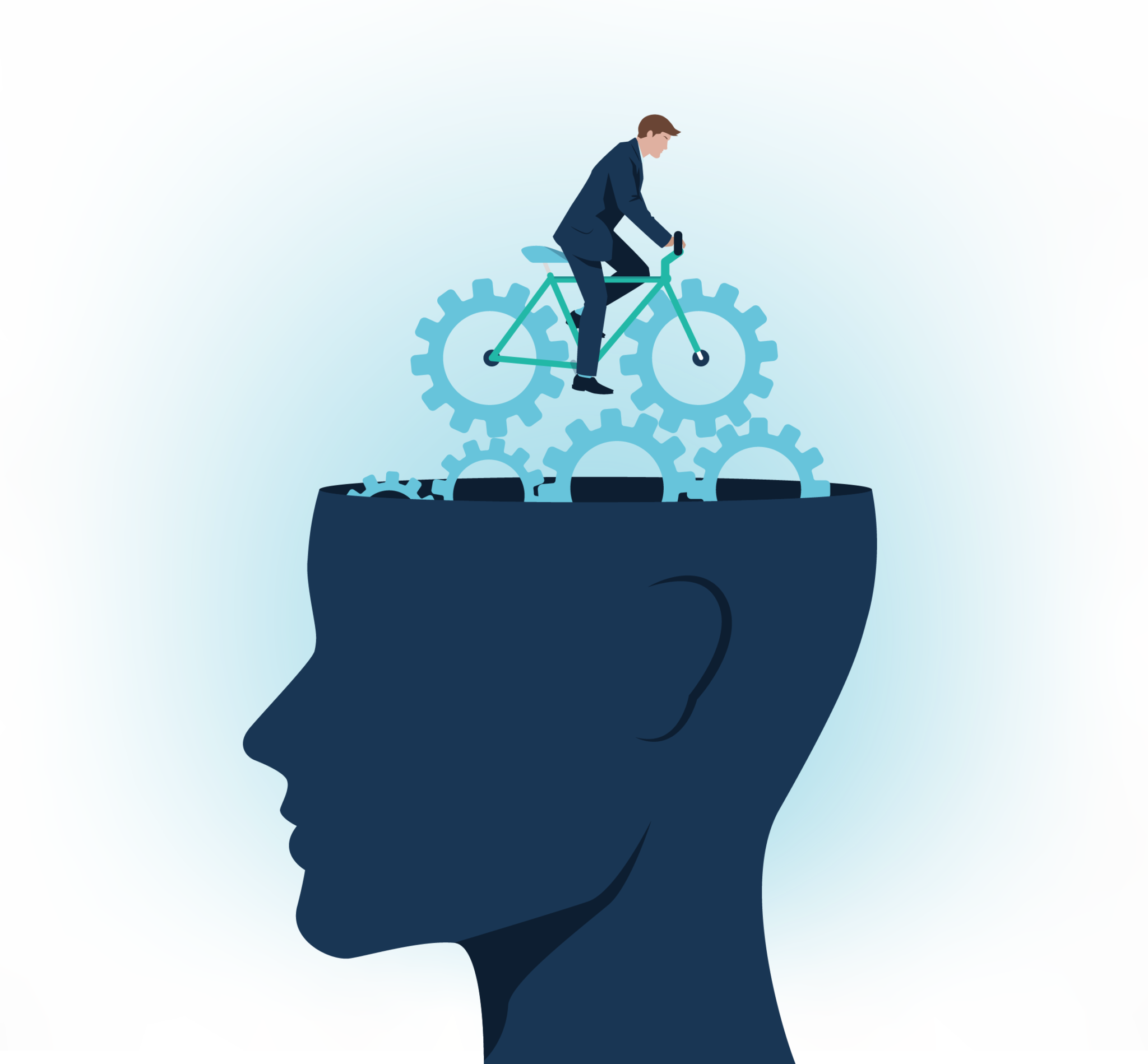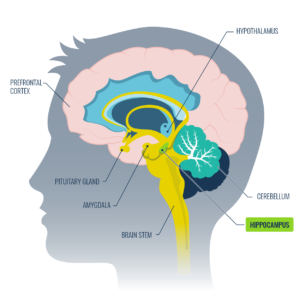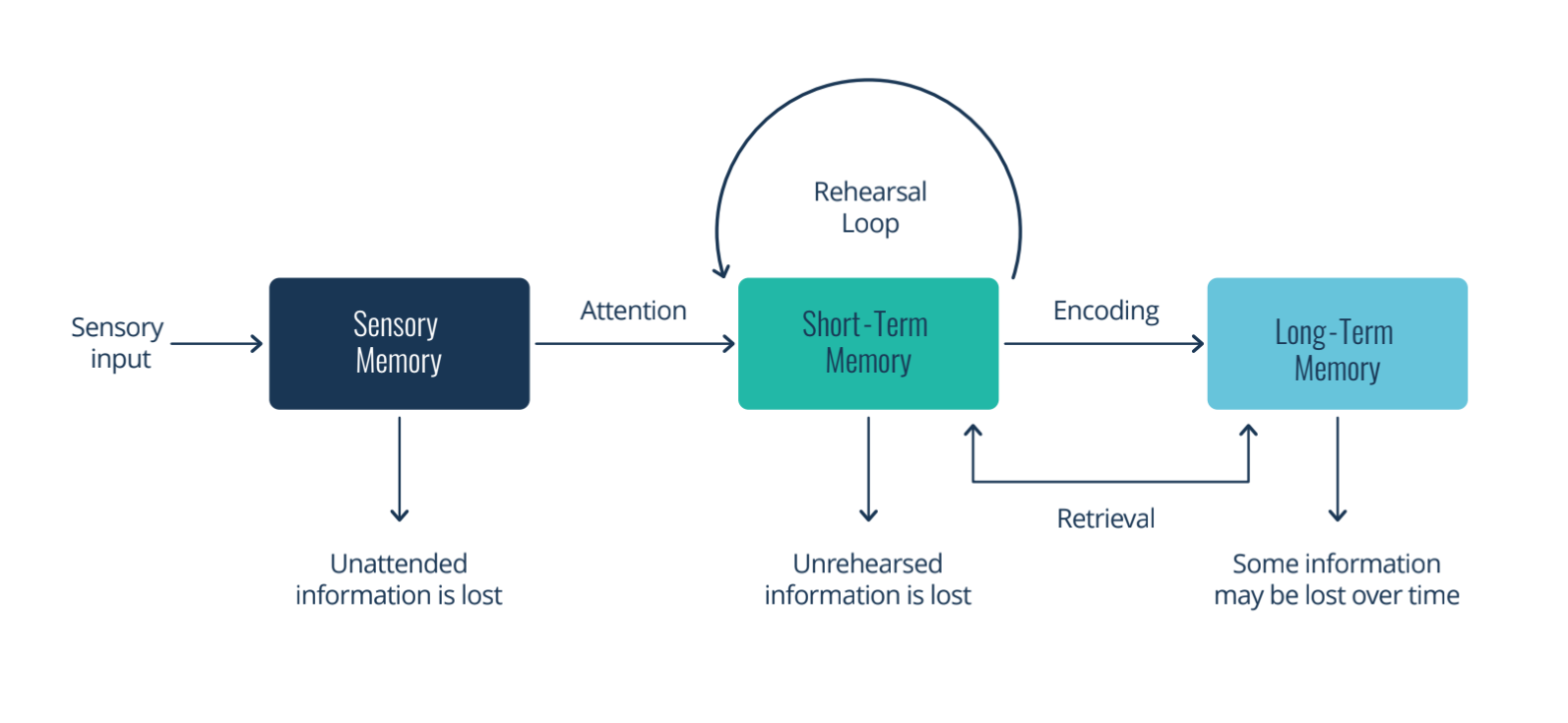
[ad_1]
 Why is it that we will faithfully recite our favorite track lyrics however wrestle to recall what the newspaper stated simply a few days in the past? And why is it that we all know find out how to navigate our hometown completely even after years of dwelling away?
Why is it that we will faithfully recite our favorite track lyrics however wrestle to recall what the newspaper stated simply a few days in the past? And why is it that we all know find out how to navigate our hometown completely even after years of dwelling away?
This all comes all the way down to our reminiscence operate and its key processes. The mind is an excellent factor, because it permits us to grasp, retailer and bear in mind info. However, this isn’t a flawless course of.
We have appeared into the neuroscience of learner engagement and gamification, amongst different subjects. But immediately, we wished to take a step again and discover the neuroscience of reminiscence.
After all, reminiscence performs an enormous position in our on a regular basis lives, together with studying and improvement.
As such, with out additional ado, let’s discover how our mind types, shops and processes recollections.
Ready? Let’s go!
What Is Memory?
When we hear the phrase ‘memory’, we frequently consider flashbacks or our skill to retrieve experiences or data we’ve got skilled earlier than. But there’s much more to it than that!
Memories happen when the mind prompts particular teams of neurons. As such, any stimulus we obtain, like fascinated with your canine, greatest buddy or least favorite chocolate bar, leads to a novel sample of neuronal exercise.
In reality, reminiscence is a complicated course of that entails a number of elements of the mind working collectively. Indeed, we undergo a wide range of processes once we create recollections. This contains encoding, storing and retrieving info.
These three capabilities are key points of knowledge processing and reminiscence functioning. As such, let’s take a look at these processes individually to really perceive how our reminiscence works.
1. Memory Encoding
The mind is an enormous and highly effective organ. However, it can’t address each sort of sensory enter we obtain.
In reality, when new info enters our reminiscence system, we have to change it right into a type that our mind can address and retailer successfully. This course of known as reminiscence encoding.
We will look into the several types of reminiscence storage afterward on this article. These differing types have a giant affect on how we retailer info and for a way lengthy.
However, finally, for us to retain info over time, we have to encode it right into a extra secure type of reminiscence. This means changing the incoming sensory enter right into a neural code that we will then retailer and retrieve.
The coding course of itself is influenced by numerous components, like consideration, repetition and relevance. There are additionally completely different kinds of encoding:
- Semantic encoding: Encoding primarily based on the which means of the knowledge. Information processed on this approach is usually higher structured and simpler to recollect. We additionally discover it simpler to encode semantic info.
- Visual encoding: Encoding primarily based on the visible options of the knowledge. This sort of encoding processes new info primarily based on its visible look, like color, form or texture. We retailer visible info within the visuospatial sketchpad, which is related to our central govt.
- Acoustic encoding: Encoding primarily based on the sound of the knowledge. Acoustic encoding occurs once we course of info primarily based on its auditory options, like pitch, tone or rhythm.
The variations between a lot of these encoding are simpler to grasp with an instance.
For occasion, in case you are taking a look at a phrase in a dictionary, you’re utilizing visible encoding. However, in case you are repeating it to your self aloud, you’re utilizing acoustic encoding. Similarly, you’ll use semantic encoding in the event you set up its which means and related context.
2. Memory Storage

Memory storage refers back to the course of the place we retailer info within the mind for later retrieval. As such, it performs a significant position in our survival, studying, problem-solving and private identification.
Memories are saved in lots of areas of the mind. In reality, we retailer completely different sorts of recollections throughout numerous interconnected mind areas.
For occasion, our express recollections (occasions that occurred to you) and semantic recollections (info and data) are saved within the hippocampus, the neocortex and the amygdala. Implicit recollections (motor recollections), however, are saved within the basal ganglia and cerebellum.
Just to make issues a bit extra difficult, we even have three several types of reminiscence storage. These are our sensory reminiscence storage, short-term reminiscence storage and long-term reminiscence storage.
1. Sensory Memory
Sensory reminiscence is the earliest stage of reminiscence. We obtain stimuli from our environment. This info is then saved in our sensory reminiscence for a quick time period.
There are three kinds of sensory reminiscence.
- Echoic reminiscence retains the knowledge we collect via auditory stimuli.
- Iconic reminiscence retains the knowledge we collect via sight.
- Haptic reminiscence retains information we purchase via contact.
The sort of stimuli impacts how lengthy the reminiscence stays in our sensory reminiscence. For occasion, visible info solely enters our sensory reminiscence for not than a second. Auditory info, however, stays for 3 to 4 seconds.
As such, the position of sensory reminiscence is principally to cross info into the subsequent stage: our short-term reminiscence.
2. Short-Term Memory
Our short-term reminiscence is the knowledge we at the moment take into consideration. This is why it’s additionally known as our ‘active memory’.
As the identify suggests, we solely retailer recollections in our short-term reminiscence for about 20 to 30 seconds. As such, we neglect most of our short-term recollections very quickly. In reality, it has a comparatively small capability.
Psychologist George Miller printed a now-famous paper in 1956. He advised that our short-term reminiscence solely has capability for storing a listing of between 5 and 9 gadgets.
Later analysis, nevertheless, means that the true capability could be nearer to 4.
Regardless, our short-term reminiscence performs a vital position in permitting a few of the info to enter the subsequent stage: our long-term reminiscence.
3. Long-Term Memory
Lastly, info enters our long-term reminiscence. Long-term reminiscence refers to our skill to retailer and retrieve info over lengthy intervals of time.
It is split into two varieties: express reminiscence and implicit reminiscence. Explicit reminiscence is additional divided into episodic reminiscence (reminiscence of occasions and experiences) and semantic reminiscence (reminiscence of info and ideas). Implicit reminiscence contains expertise and habits that we purchase via repetition and apply.
Long-term reminiscence is believed to have a vast capability. However, our skill to retrieve info might decline with age or because of neurological circumstances, like Alzheimer’s illness.
3. Memory Retrieval
The final reminiscence course of is retrieval. This refers to our skill to entry info and get it out of our beforehand explored reminiscence storage.
To accomplish that, our brains reactivate the neural pathways we created in the course of the preliminary encoding course of. These pathways are additionally referred to as synapses.
There are a number of triggers for reminiscence retrieval. It can happen spontaneously, or it could get triggered by inside or exterior stimuli. We may deliberately provoke reminiscence retrieval ourselves.
Similarly, there are differing types of reminiscence retrieval:
- Recognition: We recognise info or stimuli we’ve got encountered beforehand. For instance, recognising a well-known face or reality we’ve got learnt earlier than.
- Recall: Our skill to retrieve info from reminiscence with none exterior cues. For instance, if you recall a cellphone quantity or tackle from reminiscence.
- Relearning: This course of entails studying info that we learnt beforehand however forgot. Relearning is usually a lot faster than preliminary studying as a result of some reminiscence traces nonetheless exist.
Various components, just like the power of the reminiscence hint, the kind of reminiscence and its context, can affect the reminiscence retrieval course of.

Why Are Memories Important?
In essence, reminiscence is crucial for our survival and on a regular basis functioning. Without a reminiscence of the previous, working within the current and the long run turns into extraordinarily troublesome.
After all, we wouldn’t be capable of bear in mind faces or names, navigate acquainted environments, function instruments, autos or expertise, and even recall if we’ve got critical allergic reactions or sicknesses.
Our recollections are additionally crucial for sustaining our private identification. Memories assist us bear in mind who we’re, the place we got here from, and the life experiences which have formed who we’re.
Similarly, our reminiscence helps us keep our emotional wellbeing because it permits us to recollect essential life occasions, relationships and experiences. In reality, recollections are tightly tied to our feelings, and constructive recollections can present a way of happiness.
What’s extra, recollections are important for studying. An satisfactory reminiscence operate permits us to retailer info and experiences that we will draw upon sooner or later. Without recollections, we must relearn every little thing each time we encountered the knowledge. Sounds exhausting, proper?
Overall, recollections are important to our cognitive, emotional, and social well-being, and they’re a elementary side of our human expertise.
Why Do We Forget Information?
So, we now know that recollections are important for us to function in our each day lives and information our decision-making and persona. If that is the case, why will we neglect info?
Forgetting is a pure course of that happens when our mind fails to retrieve or retain info. This can occur for a number of causes:
- Encoding failure: If we don’t encode new info correctly within the mind, we can’t retrieve it later. This is a standard reason behind forgetting. It occurs when we don’t take note of the knowledge or fail to type a significant reference to it.
- Memory decay: It’s pure for recollections to fade over time in the event that they aren’t bolstered via use. In reality, the extra we recall the reminiscence, the stronger it turns into. This is as a result of the connection between neurons strengthens. Similarly, weak recollections ultimately fade away.
- Interference: Other recollections can intervene with the knowledge we try to retrieve. This is particularly frequent when comparable recollections compete for retrieval or when new recollections overwrite previous ones.
- Retrieval failure: Have you ever recognized that you realize one thing however merely can’t recollect it? For occasion, the place you left your keys or the place you parked your automobile. This typically occurs when the context or cues for retrieval are usually not obtainable.
- Motivated forgetting: Sometimes we actively work to neglect recollections. These recollections are usually traumatic or targeted on disturbing occasions or experiences. Motivated forgetting has two types: suppression (aware forgetting) and repression (unconscious forgetting).
Research exhibits that point is without doubt one of the crucial components in relation to reminiscence failure. For instance, the Forgetting Curve suggests we neglect 90% of knowledge inside per week if we don’t attempt to retain it.
However, forgetting is a pure and considerably needed course of that helps our brains to filter out each irrelevant and outdated info. As such, it helps us to prioritise what’s essential for our present wants.
8 Ways To Improve Your Memory
Even although forgetting is pure, there are methods you may attempt to enhance your reminiscence.
While the following tips gained’t make you bear in mind the primary 60,000 digits of Pi in a single day, they offers you simply actionable methods to enhance your total reminiscence operate.
Let’s have a look!
1. Get Enough Rest
Sleep is crucial for efficient reminiscence consolidation. This is the method by which we strengthen and retailer recollections within the mind. As such, attempt to get sufficient sleep to retailer recollections extra effectively.
2. Practise Active Recall
There is a purpose why spaced repetition is such an efficient coaching technique! Repetition lets you encode the knowledge past your short-term reminiscence.
In reality, by actively recalling any new info you have got learnt, you may assist strengthen your reminiscence of it. Practising energetic recall might be extraordinarily helpful in bettering your reminiscence.
3. Make Associations
Creating associations between new info and what you already know may also help you to make the brand new info extra memorable.
As such, attempt to connect which means and relevance to the knowledge you want to retailer in your long-term reminiscence. Similarly, you may group info collectively to make it simpler to recollect.
Creating a thoughts map may also help you to realize this.
4. Adopt Healthy Habits
Eating a nutritious diet and exercising recurrently have been proven to enhance reminiscence. In reality, train alone will increase blood move to the mind and promotes the expansion of recent mind cells.
With this in thoughts, attempt to get loads of train and complement it with a food plan that’s wealthy in fruits, greens and omega-3 fatty acids.
5. Write Things Down
Writing info down is a useful option to implant recollections into your mind. What’s even higher, your written notes then function a reminder or reference afterward.
6. Stimulate the Brain
Challenging your mind via mentally stimulating actions is a good way to enhance your reminiscence operate. Try to study a brand new talent or play mind video games to maintain participating your mind.
7. Keep Your Stress Levels Low
High ranges of stress can impair your reminiscence. With this in thoughts, attempt to discover methods to handle your stress.
For instance, you can strive practising mindfulness. It’s a good way to enhance your reminiscence by decreasing stress and bettering focus.
8. Learn in Small Chunks
Breaking info down into small chunks is an method referred to as microlearning. We are massive followers of this course of right here at Growth Engineering!
After all, remembering a considerable amount of info might be overwhelming. This, in flip, makes it more durable to retrieve and retailer info in your long-term reminiscence.
As such, breaking info down into extra manageable chunks additionally makes it simpler to recollect.
Final Words
Nowadays, we’ve got a comparatively good understanding of how the mind works in relation to creating and conserving recollections.
However, we nonetheless have an extended option to go. Researchers proceed to review the neuroscience of reminiscence and the way we will enhance our encoding, storage and retrieval processes. Even so, one factor is evident: human reminiscence is a posh course of!
While we’re capable of retrieve big quantities of knowledge, we additionally encounter memory-related threats every day.
This emphasises the necessity for efficient L&D programmes that repeat info in spaced intervals. After all, we need to construct neural connections which are as robust as potential!
Our tip sheet, 100 Brain Science Tips to Boost Your Training Strategy, lets you supercharge your coaching programme with neuroscience in thoughts. Get your free copy immediately!
[ad_2]

